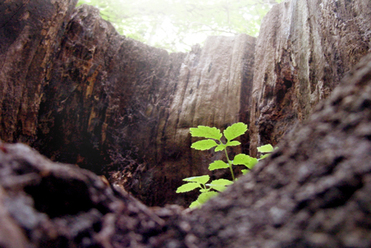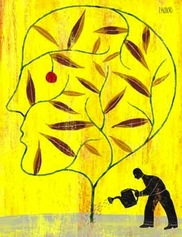
It humbles my mind to think that throughout human history, personal and collective trauma has arguably impacted every man and woman at some point in their lives. There are profound losses that we all must face, such as the death of parents and friends. We may also face sudden accidents or life-altering sickness, and the recent fires across Victoria, NSW and Tasmania remind us that natural disasters can devastate lives from one day to the next. As a psychotherapist, every day I also see the cyclical traumas humans inflict upon each other: emotional, physical and sexual abuse, abandonment, and other behaviours that often pass from one generation to another when unresolved wounds are covered up. As buried wounds never loose their power, they soon corrupt our essential nature.
While personal traumas can feel extremely isolating, in fact, traumatic events are unfortunately a normal part of life. Culturally, we would be better off not hiding our wounds from each other. I have noticed amongst my own friends, that when I share my own wounding, it gives permission for others to also be honest about theirs. The isolation instantly recedes. Empathy, a powerful healing force, can naturally flow.
While personal traumas can feel extremely isolating, in fact, traumatic events are unfortunately a normal part of life. Culturally, we would be better off not hiding our wounds from each other. I have noticed amongst my own friends, that when I share my own wounding, it gives permission for others to also be honest about theirs. The isolation instantly recedes. Empathy, a powerful healing force, can naturally flow.
However, in many families and communities, the showing of wounding or grieving of traumas is not publicly encouraged or accepted. In fact, repressing emotions is often considered a sign of strength and a necessity for survival. Underlying this position is a fear of emotion, and a belief that emotions make us weak. Perhaps they do, temporarily. However a surrender to the intelligence of our evolutionary feelings is the necessary gate to all true healing... healing that leads to revitalisation and personal growth.
This is where finding an empathic and well-trained psychotherapist or counsellor can be life changing. In my own work with trauma - both in my own life and with a wide array of clients, from physical and sexual abuse, to those leaving religious institutions and cults, to bereavement and life's many profound losses - I always begin by creating a safe place for the wound to express itself, to tell its own story, and eventually, for the individual grieve. From here, profound growth is possible.
Recently, while speaking with Swinburne's Chair of Psychology and Director of Brain & Psychological Sciences Research Centre, Michael Kyrios, about my interest in the accelerated potential for personal growth as we face our mortality through traumatic events, he shared his own long-standing interest in what he called "Post Traumatic Growth". This term jumped out at me, and has become an important anchor as I continue my research into our human potential not only to heal, but to positively transform as a result of our most difficult experiences.
On this blog, from time to time I'll be sharing some of the powerful research and techniques that I come across. Most recently, one of my teachers and mentors, Jane Holmes, shared with me the profound effects of a training she is currently undertaking in Somatic Experiencing with Peter Levine, author of Waking the Dragon. On his web site he writes:
This is where finding an empathic and well-trained psychotherapist or counsellor can be life changing. In my own work with trauma - both in my own life and with a wide array of clients, from physical and sexual abuse, to those leaving religious institutions and cults, to bereavement and life's many profound losses - I always begin by creating a safe place for the wound to express itself, to tell its own story, and eventually, for the individual grieve. From here, profound growth is possible.
Recently, while speaking with Swinburne's Chair of Psychology and Director of Brain & Psychological Sciences Research Centre, Michael Kyrios, about my interest in the accelerated potential for personal growth as we face our mortality through traumatic events, he shared his own long-standing interest in what he called "Post Traumatic Growth". This term jumped out at me, and has become an important anchor as I continue my research into our human potential not only to heal, but to positively transform as a result of our most difficult experiences.
On this blog, from time to time I'll be sharing some of the powerful research and techniques that I come across. Most recently, one of my teachers and mentors, Jane Holmes, shared with me the profound effects of a training she is currently undertaking in Somatic Experiencing with Peter Levine, author of Waking the Dragon. On his web site he writes:
Somatic Experiencing® is a body-awareness approach to trauma being taught throughout the world. It is the result of over forty years of observation, research, and hands-on development by Dr. Levine. Based upon the realization that human beings have an innate ability to overcome the effects of trauma, Somatic Experiencing has touched the lives of many thousands. SE® restores self-regulation, and returns a sense of aliveness, relaxation and wholeness to traumatized individuals who have had these precious gifts taken away. Peter has applied his work to combat veterans, rape survivors, Holocaust survivors, auto accident and post surgical trauma, chronic pain sufferers, and even to infants after suffering traumatic births.
If you have suffered an unresolved trauma in your life, you may consciously or unconsciously be living under its effects. While we cannot alter the past, we have enormous power to shape our attitude towards our experiences, and to create space in our lives for healing to take place, and to potentially transform us in ways we haven't yet imagined. If you are ready to talk about your feelings and experiences, you can be in touch to determine whether my approach is right for you.
Meanwhile, see the article below for one woman's unfolding story of trauma and "beating the odds" with Somatic Experiencing.
Meanwhile, see the article below for one woman's unfolding story of trauma and "beating the odds" with Somatic Experiencing.
 RSS Feed
RSS Feed

